Les débuts en Afrique du Sud
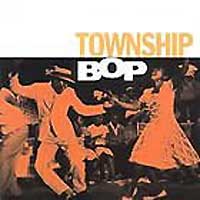 Les Blue Notes comprenait des musiciens d’exception comme Chris McGregor au piano, Mongeni Feza à la trompette, Dudu Pukwana au sax alto, Nikele Moyake au sax tenor, Johnny Dyani à la contrebasse et Louis Moholo à la batterie. Ce groupe multiracial, une première en Afrique du sud, conçut un jazz nourri de marabi, de kwela, des musiques de carnaval malaises et de jazz américain. En 1963, le groupe s’installe à Johannesburg, se produit au National Jazz Festival et enregistre à cette occasion The African Sound. Il joue régulièrement au Downbeat club de Johannesburg mais repart au Cap enregistrer un album à la SABC qui sortira en 2002 sous le titre Township Bop, révélant ,sous un style marqué par le Cape Jazz, l’influence grandissante du bebop. Cet album qui regroupe diverses sessions d’enregistrements, laisse entendre, dans les plus anciennes, McGregor, Pukwana et Moyake et, dans les plus récentes, Feza, Dyani et Moholo.
Les Blue Notes comprenait des musiciens d’exception comme Chris McGregor au piano, Mongeni Feza à la trompette, Dudu Pukwana au sax alto, Nikele Moyake au sax tenor, Johnny Dyani à la contrebasse et Louis Moholo à la batterie. Ce groupe multiracial, une première en Afrique du sud, conçut un jazz nourri de marabi, de kwela, des musiques de carnaval malaises et de jazz américain. En 1963, le groupe s’installe à Johannesburg, se produit au National Jazz Festival et enregistre à cette occasion The African Sound. Il joue régulièrement au Downbeat club de Johannesburg mais repart au Cap enregistrer un album à la SABC qui sortira en 2002 sous le titre Township Bop, révélant ,sous un style marqué par le Cape Jazz, l’influence grandissante du bebop. Cet album qui regroupe diverses sessions d’enregistrements, laisse entendre, dans les plus anciennes, McGregor, Pukwana et Moyake et, dans les plus récentes, Feza, Dyani et Moholo.
L’exil
Constamment harcelé par la police qui n’accepte pas le statut multiracial du groupe, les Blue Notes est contraint à l’exil et quitte le pays en 1964. Il se produit au festival de jazz d’Antibes, demeure en Suisse pendant un an (Zurich et Genève) puis s’installe à Londres en Avril 1965 où il se produit régulièrement au Ronnie Scott Club. En dépit de l’hostilité affichée par certains musiciens britanniques qui leur bloquent l’accès aux clubs londoniens, les Blue Notes va exercer une influence majeure par son swing et sa créativité, demeurant notamment une référence pour des artistes comme Keith Tippett, Evan Parker, John Stevens et John Surman. Entrecoupant leur séjour londonien de concerts au Danemark, ils vont peu à peu installer leur réputation dans toute l’Europe du Nord et en France.
Carrières solos
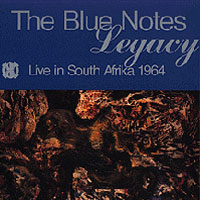 Mais le groupe connaît de sérieuses difficultés pour survivre et en 1965, il se sépare : Mongezi Feza s’installe à Copenhague, Johnny Dyani et Louis Moholo partent en Amérique du sud en compagnie de Steve Lacie et enregistrent avec lui The forest and the zoo. Nikele Moyake décide de repartir en Afrique du sud et meurt d’une tumeur au cerveau en 1966. Mc Gregor s’installe dans le sud-ouest de la France et monte le Brotherhood of Breath (la confrérie du souffle), son projet de big band qu’il dirigera jusqu’à sa mort en 1990. Dudu Pukwana qui a enregistré plusieurs disques personnels et a continué à travailler avec Chris McGregor mourra un mois après ce dernier.
Mais le groupe connaît de sérieuses difficultés pour survivre et en 1965, il se sépare : Mongezi Feza s’installe à Copenhague, Johnny Dyani et Louis Moholo partent en Amérique du sud en compagnie de Steve Lacie et enregistrent avec lui The forest and the zoo. Nikele Moyake décide de repartir en Afrique du sud et meurt d’une tumeur au cerveau en 1966. Mc Gregor s’installe dans le sud-ouest de la France et monte le Brotherhood of Breath (la confrérie du souffle), son projet de big band qu’il dirigera jusqu’à sa mort en 1990. Dudu Pukwana qui a enregistré plusieurs disques personnels et a continué à travailler avec Chris McGregor mourra un mois après ce dernier.
Dudu Pukwana, Mongezi Feza et Louis Moholo seront réunis au sein d’un autre groupe, Assagai, spécialisé dans l’afro-rock, mais chacun développera une carrière personnelle : Johnny Dyani va travailler avec Don Cherry et Mal Waldron. Louis Moholo va enregistrer avec de nombreux jazzmen (Cecil Taylor, Evan Parker, Stan Tacey) et à son retour en Afrique du sud va monter plusieurs groupes dont « Louis Moholo-Moholo » et « The Dedication Orchestra », un big band formé d’anciens musiciens exilés.
Tributes
En 1968, Joe Boyd produit pour Polydor, Very Urgent, qui sortira sous le nom du groupe Chris McGregor Group mais regroupe tous les musiciens de Blue Notes et s’oriente vers le free jazz. Le Blue Notes se réunira pour quelques projets d’enregistrement dans les années 1970 Up to the earth en 1968, Blue Notes for Mongezi en 1975, In concert vol1 en 1978 . En 1986, à la mort de Johnny Dyani, les Blue Notes lui dédient l’album Blue Notes For Johnny. En 1995, sort The Blue Notes Legacy enregistré en 1964.
Le 21 Septembre 2007, le Président Thabo Mbeki décore le groupe de l’ordre de Inkhamanga pour sa contribution à l’histoire de la musique sud-africaine et sa lutte contre le régime d’oppression raciale que représentait l’apartheid.
Sources :
Wikipedia
Itw Chris McGregor par Sylvie Clerfeuille, St Pierre de Caubel, 1987 pour Paroles et Musique.
Chris McGregor and the Brotherhood of Breath, by Maxine McGregor,Bamberger Books, 1995.
The early years
Founded in the early sixties in Cape Town, the Blue Notes was composed of exceptional jazz musicians and composers as Chris McGregor on piano, Mongeni Feza on trumpet, Dudu Pukwana on alto saxophone, Nikele Moyake on tenor sax, Johnny Dyani on bass and Louis Moholo->5046] on drums. In 1963, the group moved to Johannesburg, played in National Jazz Festival, recorded then the African sound and established a residence in the Downbeat Club. They returned to Cape Town to make their first studio recordings for the SABC (the national TV) and recorded various sessions finally gathered on an album issued in 2002 under the name Township bop. Their major influence at that time, apart from the Cape Jazz music, their “identity card”, was bebop.
The exile
As a mixed race band, they had to face a permanent harrassment from the police. In 1964, they decided to go into exile and flew to Fance. They played first at Antibes Jazz Festival, then settled in Switzerland for one year. They decided then to live in London but had to face the hostility of british jazz musicians who regarded them as intruders. Therefore, they performed from time to time in Denmark and started to get famous in Northern Europe and France. Their inventive style between south african swing, bebop and free jazz had a major influence on the London jazz scene of the late sixties. The Blue Notes have been regarded as a musical reference by artists such as Keith Tippett, Evan Parker, John Stevens and John Surman.
The split
At the end of 1965, the group split : Feza went to play in Denmark, Louis Moholo and Johnny Dyani toured with Steve Lacy in south America and Nikele Moyake went back to South Africa and died of a brain tumour a year later. Chris Mc Gregor settled in the south west of France and set up a big band, the Brotherhood of breath.
In 1968, the Blue Notes, gathered under the name “The Chris Mcgregor band” released Very Urgent, produced by Polydor, an album affirming a free jazz tendency. Although each member had a personal carrer, they met from time to time releasing an album. In 1975, when Mongezi Feza died, they recorded Blue Notes for Mongezi », in 1978, in concert vol1 and Blue Notes for Johnny (Johnny Dyani died in 1987) .
The national Order of Inkhamanga in Silver
On 21 September 2007 President Thabo Mbeki gave official recognition to the contribution of the Blue Notes to South African music by awarding the group the national Order of Inkhamanga in Silver. The citation for the award stated, in part: “The Blue Notes goes back to a golden age in South Africa’s musical history. The multiracial band’s eclectic and uniquely South African rendition of jazz made them a noteworthy jazz band in the international halls of fame. They were once one of the most popular jazz bands in the country, often defying the tyrannical race laws of the country in order to perform”.
Sources :
Wikipedia
Itw of Chris McGregor by Sylvie Clerfeuille in St Pierre de Caubel, 1987.
Chris McGregor and the Brotherhood of Breath, by Maxine McGregor, Bromberger Books.

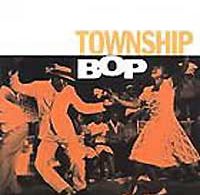
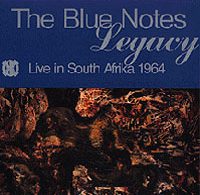

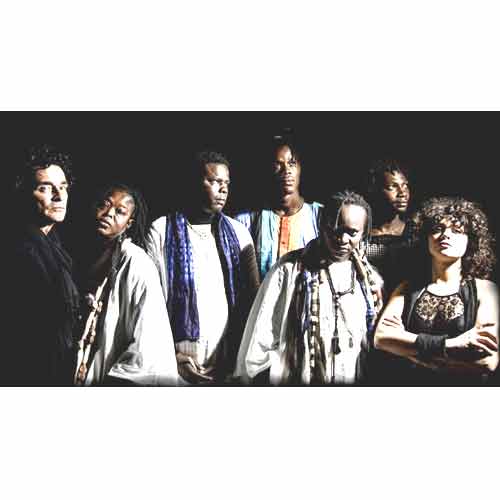


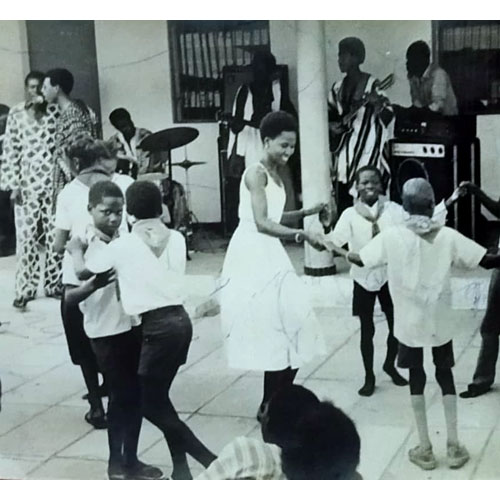

[…] Dudu Pukwana, Johnny Dyani, Louis Moholo, Mongezi Feza, Nikele Moyake Groupes: The Blue Notes Labels: Cadillac Records, Ogun Records Pays: Afrique du Sud Styles: Afro-jazz, Jazz […]